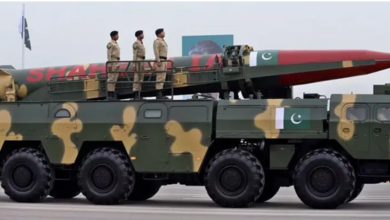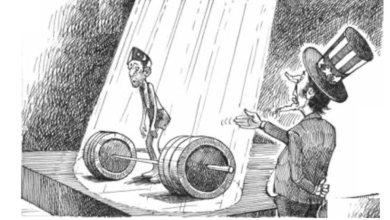In severe convulsions
“I specifically want to meet you tomorrow. My stay in London will only be for eight hours. Will you have time to spend a few hours together but alone?” I could recognize that voice among millions. “Of course, I will come to the airport to pick you up myself.” I noted down the details of his flight on a piece of paper. His childhood and youth were spent in the American state of Arizona. This state, with its barren mountains, deserts, and a few gardens, looks just like Baluchistan. If there were no splendid motorways passing through these valleys and no beautiful hotels and petrol pumps scattered around, it would seem like traveling from Surab to Panjgur or from Kakar Khurasan to Loralai.
He obtained his engineering education from the University of Massachusetts and began living like an ordinary American. Since he belonged to a state where there was a water shortage problem, he dedicated his knowledge to the search and supply of water. Like many educated Americans, it was not difficult for him to get a job with international organizations and large global companies. He secured a job with such an international company, which gave him the opportunity to work in African countries where famine, drought, poverty, and subjugation were widespread. Here, for the first time, this American witnessed the double standards of his own country and his co-religionists.
His posting in Somalia added fuel to the fire. He saw Americans who came under the guise of helping famine-stricken people shooting at Muslims with a particular bias. In Sudan, he witnessed the destruction of the largest pharmaceutical factory in the name of eliminating chemical weapons, after which the local Muslims were longing even for an ordinary aspirin tablet. By July 9, 2011, the country was split into two, with a Christian government established over one part, thus dividing Africa’s most resource-rich country into Northern and Southern Sudan. By the end of May 2011, the Northern African government, with covert support from colonial powers, had seized the oil-rich region of Abyei, which is still claimed by both the North and the South.
I met him for the first time 25 years ago in January 1999 at the headquarters of the Asian Development Bank in Mandaluyong, Manila. He had already informed me of the very interesting incident of his conversion to Islam. In a building with thousands of rooms, only outside his room was a beautiful golden plaque inscribed with “Bismillah ar-Rahman ar-Raheem.” Although thousands of Muslims live in the city of Manila and many hundreds work in the Asian Bank, including Pakistanis, the room door that declared its occupant a Muslim was Joseph’s room, who now called himself Yusuf. A tall, white American whom Allah had guided; he married a black Muslim girl from Somalia. The light of guidance is such that it creates an aura around a person. The Muslims of Manila could not remain unaffected by this aura. They observed an extraordinary American who, when speaking English, always mentioned “Allah Subhanahu wa Ta’ala” instead of using the word “God” and recited the full Darood Sharif whenever mentioning the beloved Prophet Muhammad (peace be upon him). He used all the words that are markers of a Muslim, like Assalamu Alaikum, Bismillah, Subhan Allah, and Alhamdulillah, in their proper form. He never said “Hi, thank God, good luck.” In such a large institution with thousands of events, if he liked someone’s speech, he didn’t clap but loudly exclaimed “Allahu Akbar.”
There was a unique atmosphere in his home that I observed. His wife, dressed in a hijab, and his seven-year-old daughter Fatimah, were present. When I visited his home, Yusuf told me that Fatimah was born on that day, but there was no birthday celebration. When I asked, Fatimah herself said that she doesn’t celebrate birthdays. I explained that friends come over, and she gets gifts. She innocently replied, “My parents are my best and dearest friends and give me gifts when I do good things, so there is no need for this custom.” When I asked about the details of the gift, she simply answered, “You might not know that my mother is a Hafiza of the Quran, and with her help, I also completed the memorization of the entire Quran last week. What greater gift could there be than this?” Yusuf’s wife said, “We don’t go to clubs or dance, but once, we three danced spontaneously with joy when Pakistan conducted its nuclear test.”
But what astonished and embarrassed me might astonish us all as Muslims. I went to pray with him in a room at the Asian Bank that had been designated for prayers. I finished my shortened prayer quickly and came out in a short while, but it took him about an hour to come out. I was surprised that this person did not even consider that I was waiting for him outside. I was thinking and getting frustrated when he came to me and, with great humility and embarrassment, said, “Actually, you people have heard the mention of the Merciful Lord since childhood, you are born into Muslim families, so it is easy for you to bring the concept of Allah to mind while praying. It takes me half an hour to focus my mind and bring myself to the state of mind where I feel that I am standing before the Lord of Glory who knows even the hidden thoughts of my heart and mind. Please, can you tell me a way to quickly concentrate on the thought of Allah?” Hearing this sentence, I shuddered, and tears instantly welled up in my eyes, my head bowed in shame. There was nothing in my heart but the inferiority of my faith, and a few minutes ago, from the height of the building where I stood looking down at the cars and the crowd of people who looked like tiny dots, it felt as if someone had pushed me down from there. Seeing my state, Yusuf expressed his concern and regret, thinking he might have said something hurtful, but he still did not know that the mirror he showed me had left me devastated by my reflection.
Why wouldn’t I be embarrassed? We do not even fear as much while going before our Lord as we do before a petty official or a police officer. If we study in an English-medium school for just a few years, we cannot feel at ease until we twist our mouths slightly and say, “Wish you good luck, oh God.” Seeing the tears streaming from my eyes, Yusuf was impressed, thinking I was crying out of fear and awe of Allah, whereas I was crying out of the weakness of my faith, the inferiority of my actions, and sheer embarrassment. Indeed, Muslims like me, who tremble in fear before many worldly authorities such as police officers, revenue officers, ministers, chief secretaries, governors, and chief ministers, how can we tremble in fear before an unseen Allah?
Readers! Hearing about his arrival has instilled a fear in me that if he repeats his question as to why Muslims are being so humiliated and disgraced, what answer will I give him? At your behest, I risked my career in October 2007 and met with the then military dictator Pervez Musharraf, giving him a five-point formula at his request. I also told him that it would be better for the country if he immediately stopped implementing the financial policies of his current Prime Minister (Shaukat Aziz). He unhesitatingly gave this advice and also said that if it was not followed, what would happen to nuclear Pakistan in the next twenty years. When I look at Pakistan today and see all his fears come true, my heart sinks.
In the name of my Lord, who knows the secrets of hearts!
People suffering from severe convulsions!
Nearby, there is a village of love,
Here, the smoke has hidden the scenes,
But from there, the horizon of eternity can be seen,
Here, one cannot hear one’s own voice,
But there, one can see the breath of God.






